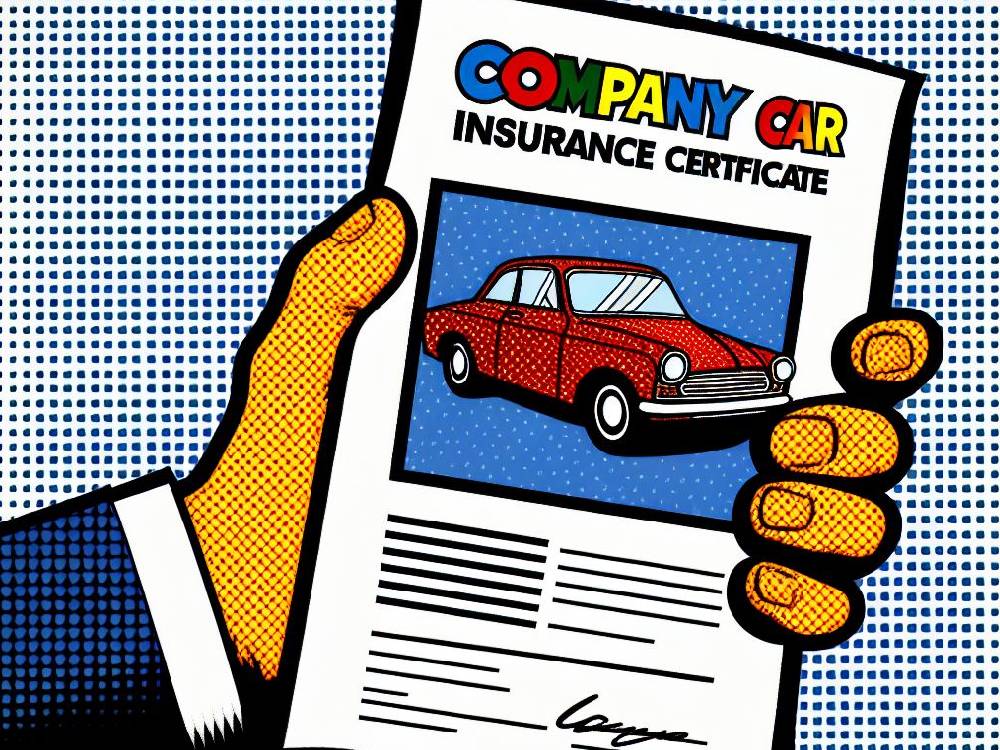What Insurance Do I Need For A Company Car?

Introduction
When it comes to managing a fleet in the UK, understanding the ins and outs of company car insurance is crucial.
This isn’t just about meeting legal requirements; it’s about safeguarding your business and employees on the road.
In this comprehensive guide, we’ll delve into everything you need to know about company car insurance.
Here’s the deal:
Exploring tailored fleet insurance options.Guidance on obtaining personalised insurance quotes.The intricacies of customising policies to fit business needs.Legal responsibilities of employers in insuring company cars.A look at comprehensive coverage options for business vehicles.Understanding the financial responsibilities and implications of company car insurance.The applicability of no claims bonuses.Personal use of company cars and related tax implications.Factors influencing the cost of insurance.
Learn more about our insurance options.
Fleet Insurance Options For Businesses
Fleet insurance is essential for businesses with multiple vehicles.
It’s not just a box-ticking exercise; it’s about finding a plan that aligns with your unique business operations.
Whether you’re running a small local business or a large national operation, the right fleet insurance can provide peace of mind and significant financial protection.
Now, you might be wondering:
Tailored Coverage: Every business is different, and so are its insurance needs.
That’s why it’s crucial to find a policy that’s as unique as your business.
Coverage can vary greatly – from basic third-party policies to comprehensive plans that include additional protections like breakdown cover and legal expenses.
Discover the right fleet insurance for your business.
Personalised Company Car Insurance Quotes
Obtaining personalised quotes is more than just shopping around for the best deal.
It’s about finding a policy that fits like a glove.
Professional advisors play a key role here, helping businesses navigate the complexities of insurance options.
But wait, there’s more:
Professional Guidance: Navigating the myriad of insurance options can be daunting.
That’s where professional advice comes in.
Insurance experts can help you weigh your options, taking into consideration factors like vehicle types, usage, and driver profiles.
Get expert guidance on insurance quotes.
Customising Policies Based On Business Requirements
Policy customisation is vital.
Factors such as how often the vehicles are driven, the number of vehicles in your fleet, and the specifics of your employees who drive them, all play into crafting the perfect policy.
Here’s an interesting fact:
Finding the Balance: It’s a balancing act between getting adequate coverage and keeping costs manageable.
This requires a careful assessment of your business’s specific risks and needs.
For instance, a business with a fleet of delivery vans will have different insurance needs compared to a company with a few company cars for executive use.
Learn about customising your company car insurance policy.
Employer’s Responsibility In Insuring Company Cars
It’s the employer’s responsibility to ensure that all company cars are adequately insured.
This includes vehicles that are owned, leased, or even rented by the company.
Compliance is not just a legal requirement but a moral one, ensuring the safety and protection of your employees.
And remember:
Self-Insured Scenarios: In cases where cars are leased or owned personally by employees, the insurance landscape changes.
Here, it’s crucial to understand who is responsible for insuring the vehicle – the company or the individual.
Understand employer’s responsibilities in car insurance.
Coverage Options In Company Car Insurance
The right coverage options can make all the difference in company car insurance.
It’s not just about covering the vehicle; it’s about ensuring business continuity in case of accidents or breakdowns.
And here’s something to think about:
Comprehensive Options: Options like breakdown cover, accident cover, and hire car options can keep your business moving, even when unexpected events occur.
It’s about more than just repair costs; it’s about minimising disruption to your business operations.
Explore comprehensive coverage options for your company cars.
Financial Responsibilities: Employers And Employees
When it comes to company car insurance, the financial responsibilities often lie with the employer.
This means covering the cost of insuring the fleet.
But it’s not just about the company’s outlay.
Employees have a stake in this too, particularly when it comes to company car tax.
Now, let’s delve deeper:
Impact of Company Car Tax: While employers bear the insurance costs, employees using company cars for personal purposes may face company car tax.
This tax can vary based on factors like the car’s value and its CO2 emissions.
Understanding the financial responsibilities in company car insurance.
No Claims Bonus In Company Car Insurance
A no claims bonus can be a significant benefit in company car insurance.
It rewards safe driving with reduced premiums over time.
But how does it work in the context of a fleet?
Here’s what you need to know:
Benefiting Businesses and Employees: A no claims bonus can accrue at both the individual and company levels.
This incentivizes safe driving practices, potentially leading to cost savings for both the business and its employees.
Learn about no claims bonus in company car insurance.
Personal Use Of Company Car And Tax Implications
Personal use of company cars is a common perk for many employees.
However, this comes with its own set of rules and tax implications.
Understanding these is crucial for both employers and employees.
But wait, there’s more:
Company Car Tax: If an employee uses a company car for personal reasons, they may be liable for company car tax.
The amount depends on factors like the type of vehicle and the extent of personal use.
Explore the personal use of company cars and tax implications.
Influencing Factors On Insurance Costs
The cost of company car insurance varies based on several factors.
These include the number of vehicles, their type, the level of cover chosen, and the driving history of employees.
Navigating these factors effectively can lead to more cost-effective insurance solutions.
And remember:
Cost-Effective Insurance Planning: Understanding the factors that influence insurance costs can help businesses plan more effectively.
This includes choosing the right vehicles and cover levels, as well as managing employee driving profiles.
Factors influencing the cost of company car insurance.
Conclusion
Navigating the world of company car insurance can be complex, but it’s essential for the smooth operation of any business with a fleet.
From understanding the different coverage options to grasping the financial responsibilities and tax implications, there’s a lot to consider.
Here’s the bottom line:
Choosing the right company car insurance is not just a legal necessity; it’s a vital part of your business strategy.
It ensures the safety and continuity of your operations while potentially saving money in the long run.
For more insights into car insurance, check out our related blogs:
Remember, at Cheap Car Insurance, we’re here to help you find the best coverage for your company cars, tailored to your specific needs.






